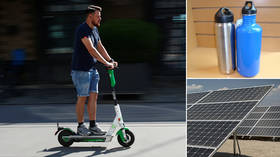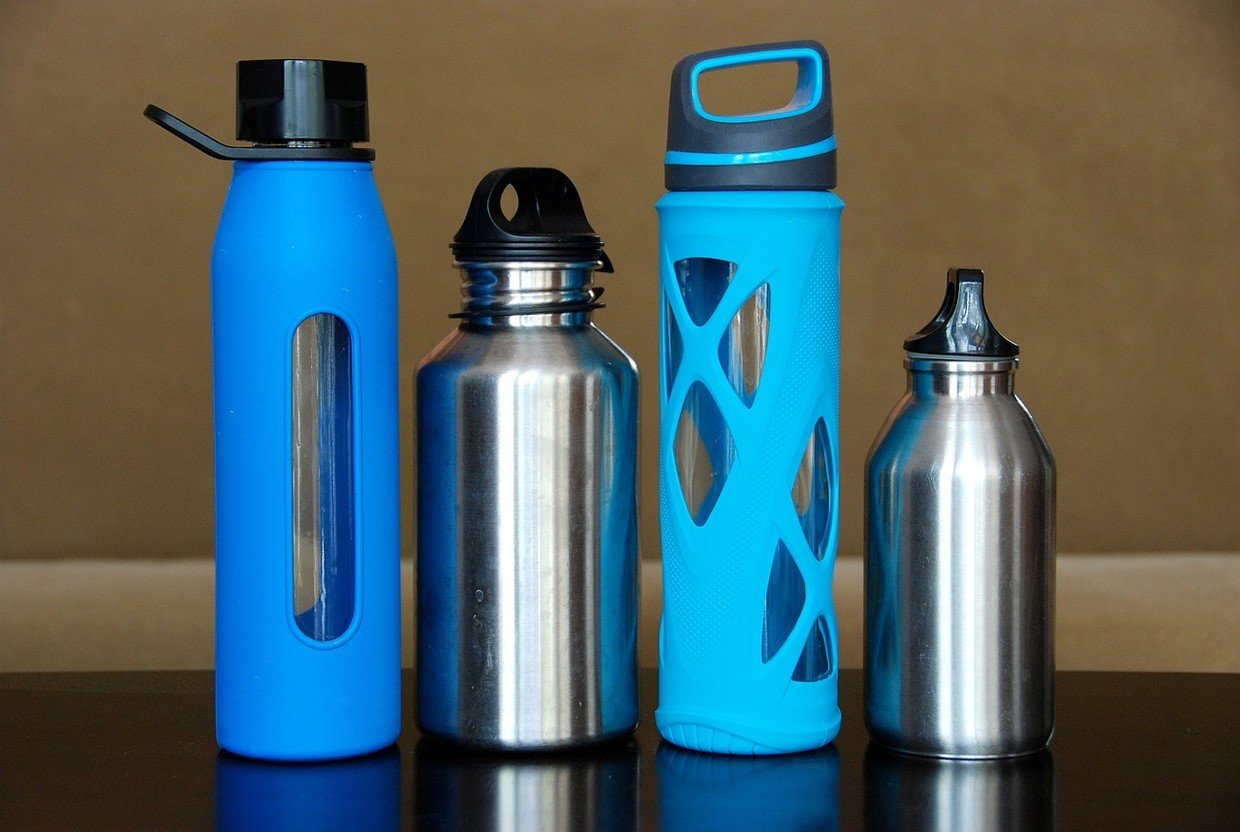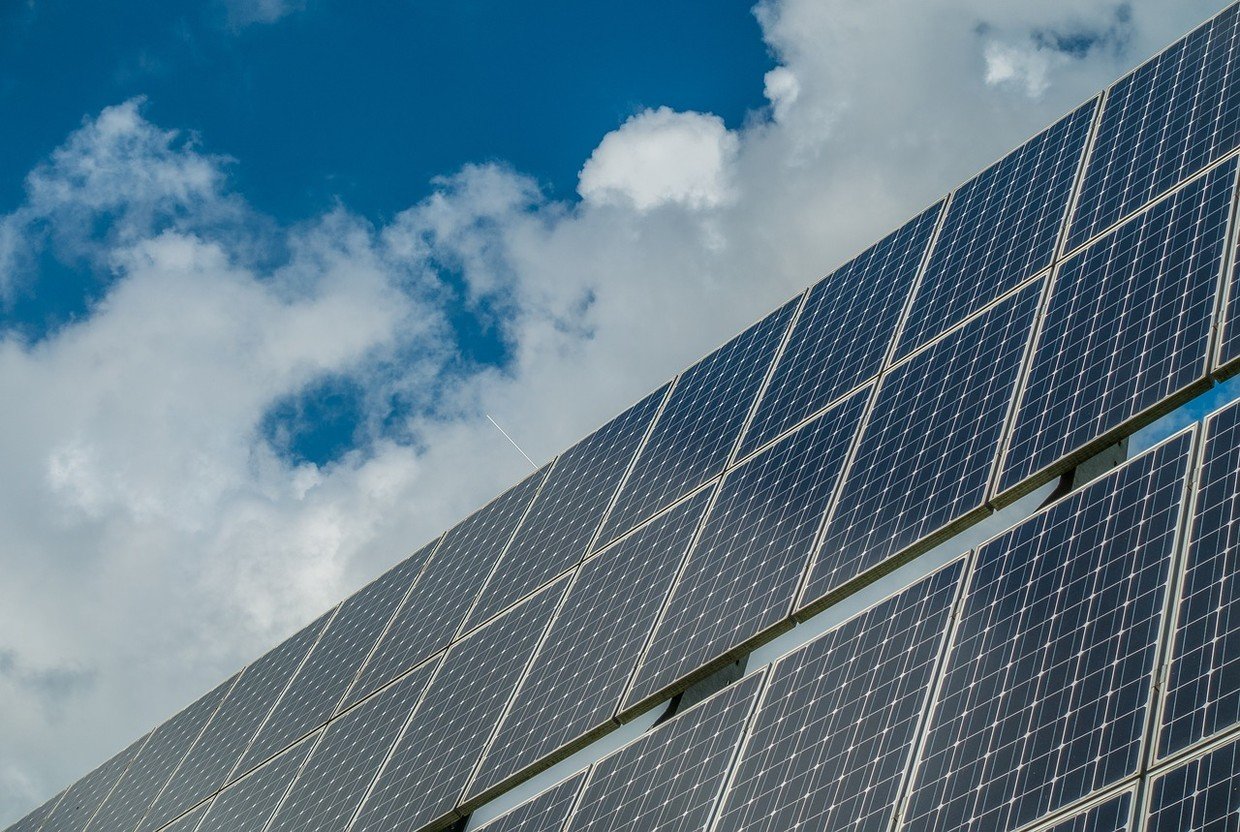Not so green after all: Five ‘eco-friendly’ products that actually harm the environment

The green brigade of climate activists and canny corporations are constantly pushing products and ideas that are seen as kinder to our planet. However many of these are far less eco-friendly than we’re being led to believe.
The latest example came just this week when a study published in Environmental Research Letters found that the shared electric scooters so-beloved of hipsters in cities around the world actually produce more greenhouse gas emissions per mile than travelling by bus, bicycle and even moped.
The researchers found that the materials it took to manufacture the battery, wheels and frame of the scooter and the companies’ collecting, charging and redistributing the scooters each day had a significant impact when it came to greenhouse gas emissions.
“E-scooter companies tout themselves as having little or no carbon footprint, which is a bold statement,” Jeremiah Johnson, the corresponding author of the study, said.
“Biking – even with an electric bike – is almost always more environmentally friendly than using a shared e-scooter,” he added.
But it’s not just e-scooters that have hoodwinked the environmentally gullible. Here’s some other eco-favorites that don’t deliver on their green promise.
Reusable aluminium and stainless steel water bottles
What better way to signal your environmental virtue than by carrying around a reusable bottle all day. The canteens have become ubiquitous in recent times as the hot new eco fad.
However the production of the bottles comes with many unfortunate consequences. Aluminium is extracted from bauxite ore, which is strip-mined and incredibly destructive to the environment, leaving toxic “tailings.” It also requires massive amounts of energy to refine.

Requiring open-pit nickel mining and iron smelting, stainless steel production is also extremely resource-intensive. To make matters worse, many manufacturers only use virgin materials despite recycled stainless steel and aluminium being widely available.
These problems have not escaped the attention of the true-blue tree huggers. In her book ‘Green Washed: Why We Can’t Buy Our Way to a Green Planet’, author Kendra Pierre-Louis proposes a radical solution:
“Instead of boldly declaring our greenness by purchasing a water bottle, isn’t it greener to do what we did before we all strolled through town with bottled water in tow: drink from public drinking fountains, or out of glasses at home and at work, or simply be thirsty for a while until we can get to a water source?”
But then how will people know how environmentally conscious you are?
Solar panels

The ultimate must have item on any conspicuous conservationist’s house, solar panels are synonymous with “clean energy.” In theory they are a brilliant way to heat water and provide a home with renewable power, however, in reality they cause more than their fair share of environmental destruction.
The panels are manufactured at 2,000 degrees Celsius (3,632 Fahrenheit). Making machines at this temperature requires a huge expenditure of fossil fuels. They are also made using a range of rare earth elements of which the world only contains a dwindling supply.
There are also issues at the end of a solar panel’s life as the devices are currently incredibly difficult to recycle. Most of the components in the machines cannot be reclaimed and end up being dumped.
Paper bags

While they may seem wholesome compared to their plastic counterparts in reality manufacturing paper bags causes significant harm and also entails the destruction of trees, one of the greatest weapons for fighting pollution.
It takes up to four times more energy to manufacture a paper bag than a plastic one and they generally don’t survive long enough to be reused as many times as plastic bags.
Research has also found that paper usually doesn’t break down any quicker than plastic in landfills because of the lack of light and oxygen in most dumps. Because of their bulkiness they also take up more room in, already overcrowded, landfills.
While they do have the benefit of being recyclable that goes out the window once they get wet. Also the process of recycling paper is extremely convoluted and resource intensive, involving the use of vast amounts of energy and a plethora of chemicals.
Organic vegetables
What could be greener than vegetables from an organic farm, grown and produced as nature intended? Unfortunately the reality of the situation is quite different from the rosy picture that’s frequently painted.
Numerous myths have sprouted up around organic food in recent decades as it exploded in popularity. The boom in demand also attracted the attention of scientific researchers who have investigated some of the claims made by organic evangelists. The results aren’t good.
Numerous studies have undermined the mythology surrounding organic farms. Most recently research published in Nature in September 2018 found that high-yield conventional farms are actually better for the environment than organic farms because they are drastically more efficient, yielding 20 percent more crops than organic farms.
Contrary to many people's perceptions, more intensive agriculture that uses less land is better for the environment because it may also produce fewer pollutants, cause less soil loss and use less water.
While this revelation may be shocking for environmentalists, they can comfort themselves in another major claim about organic food that has been debunked by scientists.
The myth is that organic food is healthier than food grown using conventional methods. Two systematic reviews, one from Stanford University and another from a team of Oxford academics, found no evidence that organic foods are more nutritious or lead to better health outcomes for consumers.
Like this story? Share it with a friend!














